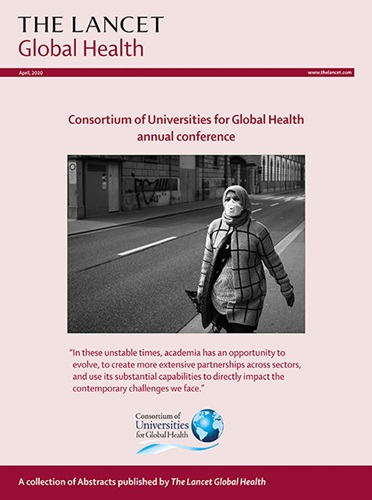PrEParing for HIV prevention among men who have sex with men in China: challenges and solutions.
IF 19.9
1区 医学
Q1 PUBLIC, ENVIRONMENTAL & OCCUPATIONAL HEALTH
引用次数: 0
Abstract
Although pre-exposure prophylaxis (PrEP) has been implemented globally, in China, engagement with the PrEP care continuum is overall low among men who have sex with men (MSM). The large population of MSM and the high proportion of PrEP-eligible individuals, coupled with low PrEP uptake and adherence, underscore the urgent need for initiatives to address barriers and facilitate uptake in this population. Based on the social ecological framework, low PrEP uptake and adherence among MSM in China can be attributed to multiple factors at the individual, interpersonal and community, and policy levels, which require a comprehensive and multifaceted approach to address. Tailored combinations of strategies need to be developed to increase PrEP awareness, acceptance, adherence, and persistence among individuals, health-care providers, and the MSM communities. Reducing stigma and discrimination towards PrEP and the MSM community is crucial to the successful implementation of PrEP. Additionally, policies that promote PrEP uptake and ensure access to appropriate regimens for eligible MSM should be in place. Solutions proposed in this Viewpoint have implications for other low-income and middle-income countries facing similar challenges against PrEP implementation.中国男男性行为者预防艾滋病的准备:挑战和解决办法。
尽管暴露前预防(PrEP)已在全球范围内实施,但在中国,男男性行为者(MSM)对PrEP连续护理的参与度总体较低。男男性行为者人数众多,符合PrEP资格的个人比例很高,加上PrEP的接受和坚持程度较低,这突出表明迫切需要采取行动,解决这一人群中的障碍并促进PrEP的接受。基于社会生态框架,中国男同性恋者PrEP使用率和依从性较低可归因于个人、人际和社区以及政策层面的多重因素,需要采取综合和多方面的方法来解决。需要制定有针对性的战略组合,以提高个人、卫生保健提供者和男男性行为者社区对PrEP的认识、接受度、依从性和持久性。减少对预防措施和男男性行为者社区的污名化和歧视对于预防措施的成功实施至关重要。此外,应制定政策,促进预防措施的采用,并确保符合条件的男男性行为者获得适当的治疗方案。这一观点提出的解决办法对其他低收入和中等收入国家在实施PrEP方面面临类似挑战具有启示意义。
本文章由计算机程序翻译,如有差异,请以英文原文为准。
求助全文
约1分钟内获得全文
求助全文
来源期刊

Lancet Global Health
PUBLIC, ENVIRONMENTAL & OCCUPATIONAL HEALTH-
CiteScore
44.10
自引率
1.20%
发文量
763
审稿时长
10 weeks
期刊介绍:
The Lancet Global Health is an online publication that releases monthly open access (subscription-free) issues.Each issue includes original research, commentary, and correspondence.In addition to this, the publication also provides regular blog posts.
The main focus of The Lancet Global Health is on disadvantaged populations, which can include both entire economic regions and marginalized groups within prosperous nations.The publication prefers to cover topics related to reproductive, maternal, neonatal, child, and adolescent health; infectious diseases (including neglected tropical diseases); non-communicable diseases; mental health; the global health workforce; health systems; surgery; and health policy.
 求助内容:
求助内容: 应助结果提醒方式:
应助结果提醒方式:


